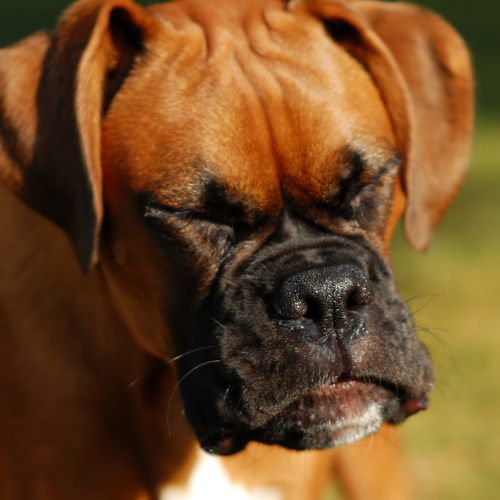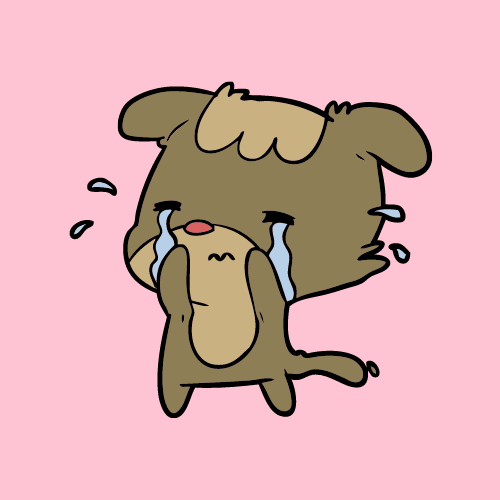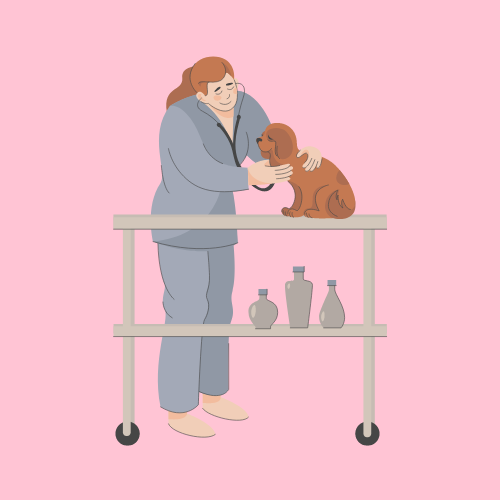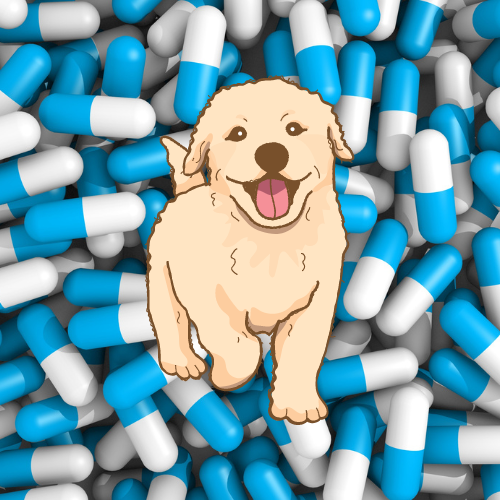When referring to a newborn puppy, the term “runny nose” signifies the presence of a clear fluid from the nose that resembles mucus. When a newborn puppy is born with a runny nose, it might be an indication of several various diseases, a few of which are more dangerous than others. The owners of pets are responsible for being aware of the potential reasons for a runny nose in a newborn dog and acting appropriately and promptly.

Why Does This Happen?
Puppies may experience a runny nose for a variety of causes, including:
- Congenital defect
- Respiratory infection
- Allergy
- Viral Infections
- Pneumonia
- Anxiety/Stress
- Foreign item
Let’s discuss all these reasons in detail.
- Congenital defect
A newborn puppy’s runny nose may result from a congenital condition, such as a cleft palate, which can occasionally be the reason. Cleft palates are uncommon, but when they occur in pups, they can result in various symptoms, including a runny nose, trouble breathing, and an inability to suckle. A puppy must be sent to the vet for therapy as soon as there is a suspicion that the puppy may have a cleft palate.
- Respiratory infection
In newborn puppies, a runny nose can be caused by several things, but one of the most prevalent is an upper respiratory infection. This condition manifests much as a cold in people and can be brought on by various viruses or bacteria. A fever, a runny nose, sneezing, and coughing are some of the symptoms seen in a puppy with an upper respiratory infection (URI). If a puppy is sick with a URI, it is essential to keep it warm and comfortable and give it lots of fluids to prevent it from becoming dehydrated. If the puppy has an upper respiratory infection,
- Allergy
An allergic reaction is another potential reason a newborn dog may have a runny nose. Puppy allergies can manifest in several ways, including a runny nose, itchy skin, and coughing. It is imperative to take a puppy to the vet for treatment if there is even the slightest possibility that the dog has an allergy.
- Viral Infections
An additional typical reason for a runny nose in a young puppy is an illness caused by a virus, such as CDV (Canine distemper virus) or parvovirus. These viruses are highly infectious and may be passed from one puppy to another. They can also be passed from an infected dog to an adult dog. These infections can cause a variety of symptoms, some of which include a stuffy nose, headache, vomiting, and diarrhea. A puppy must be taken to the veterinarian as quickly as possible if there is any reason to think that the puppy has a viral illness.
- Pneumonia
If a newborn puppy has a runny nose, it may be an indication that they are suffering from a more serious ailment such as pneumonia. Pneumonia is a severe lung illness that several viruses or bacteria can bring. The signs and symptoms of pneumonia in a puppy are a respiratory infection, coughing, trouble breathing, and a high temperature. It is imperative to take a puppy to the veterinarian as soon as possible for treatment if there is any reason to assume that the puppy has pneumonia.
- Anxiety/Stress
It is also conceivable that the newborn puppy’s runny nose results from worry or tension on the owner’s part. This might happen if the puppy is taken away from its mother or put in an unfamiliar setting for the first time. It is crucial to offer a relaxed and positive environment for a puppy that is experiencing stress or anxiety. It is also essential to seek veterinary assistance for the puppy if it is required.
- Foreign item
There is also the possibility that a foreign item obstructs the newborn puppy’s nasal passages, which is the source of the dog’s runny nose. It might be anything as basic as a blade of grass or a fragment of food the puppy has managed to get stuck in its nose. A puppy must be taken to the veterinarian as quickly as possible if there is a suspicion that a foreign item obstructs the puppy’s nasal passages. The evacuation of the object will be necessary.
What Is the Best Way to Cure a Runny Nose in a Newborn Puppy?
It might be challenging to care for a newborn dog with a runny nose. In order to keep the puppy calm, it is essential to provide ample amounts of clean water at all times and to remove any discharge. You should also make sure that your puppy gets enough rest and try to relieve congestion with the humidifier. It’s possible that an infection or allergy is to blame for your puppy’s runny nose, especially if additional symptoms like coughing, sneezing, or itchy skin follow it. Your veterinarian may suggest anti-inflammatory medications, such as prednisolone, or antihistamines, such as Benadryl, depending on the condition’s underlying cause.

Our Personal Experience
Our friend Rick once had a runny-nose puppy. So, our vet advises cleaning all the discharge after 5-10 minutes. He also recommends using some immune boosters in the dog’s diet and offering some vet-prescribed drugs regularly.
FAQs
Is a Sniffling Cough in a Young Puppy Likely to Spread an Illness to Other Puppies?
The answer to this question depends on the runny nose root cause. If the puppy is suffering from an infection caused by a virus or bacterium, such as parvovirus or distemper, for example, then the condition might potentially spread to other pups or dogs. Aside from those exceptions, a runny nose in puppies is not infectious the vast majority of the time.
Is It Possible to Stop a Newborn Dog From Having a Runny Nose?
It is impossible to protect a newborn puppy from all conditions that might cause a runny nose, including congenital abnormalities or allergic reactions. Nevertheless, protecting the puppy against specific causes, like viral illnesses, is possible by ensuring that the immunizations they receive are up to date and staying away from other dogs that may be affected.
What Kind of Prognosis Can We Expect for a Newborn Dog That Has a Runny Nose?
The prognosis for a young puppy born with a runny nose depends on the severity of the ailment and the underlying reason for the runny nose. When received promptly, veterinary care often results in a favorable outcome. On the other hand, if the illness is severe enough, such as pneumonia or an infection caused by a virus, the puppy could need to be hospitalized and undergo intense treatment, and the outlook might be uncertain.
- Can Trazodone Kill a Dog? [Guide]
- How Long Do Dogs Shiver After a Bath? [Guide]
- Why Do Dogs Like Chapstick [Guide]
Conclusion
If a puppy has a runny nose, the owner should take the necessary steps if they believe their puppy is suffering from some severe illness. Taking a puppy to the veterinarian for complete diagnosis and treatment is imperative.

Doctor of Veterinary Medicine (D.V.M.) at Nation Taiwan University,Master of Science (M.S.) in Biomedical Engineering at National Taiwan University of Science and Technology




